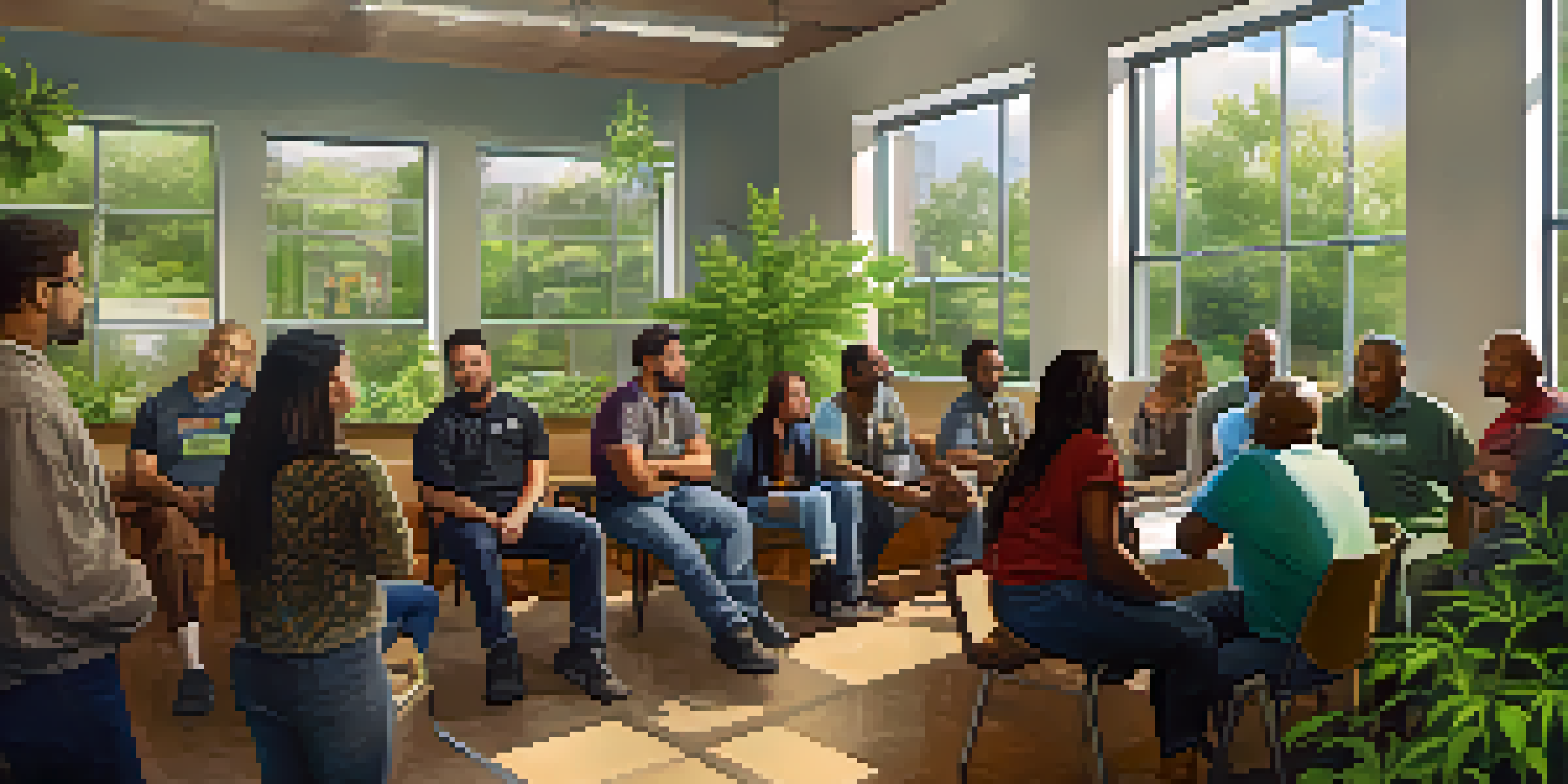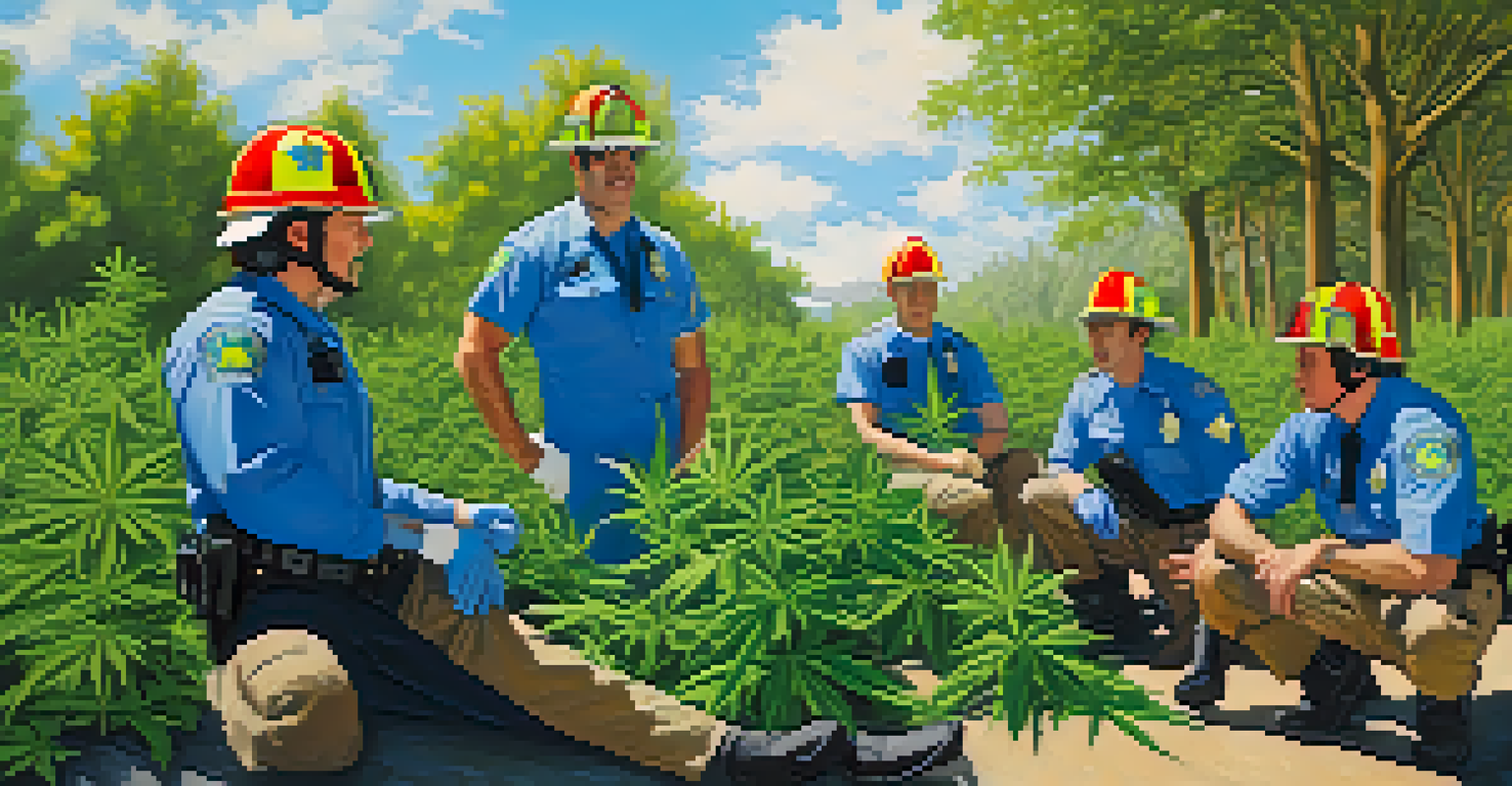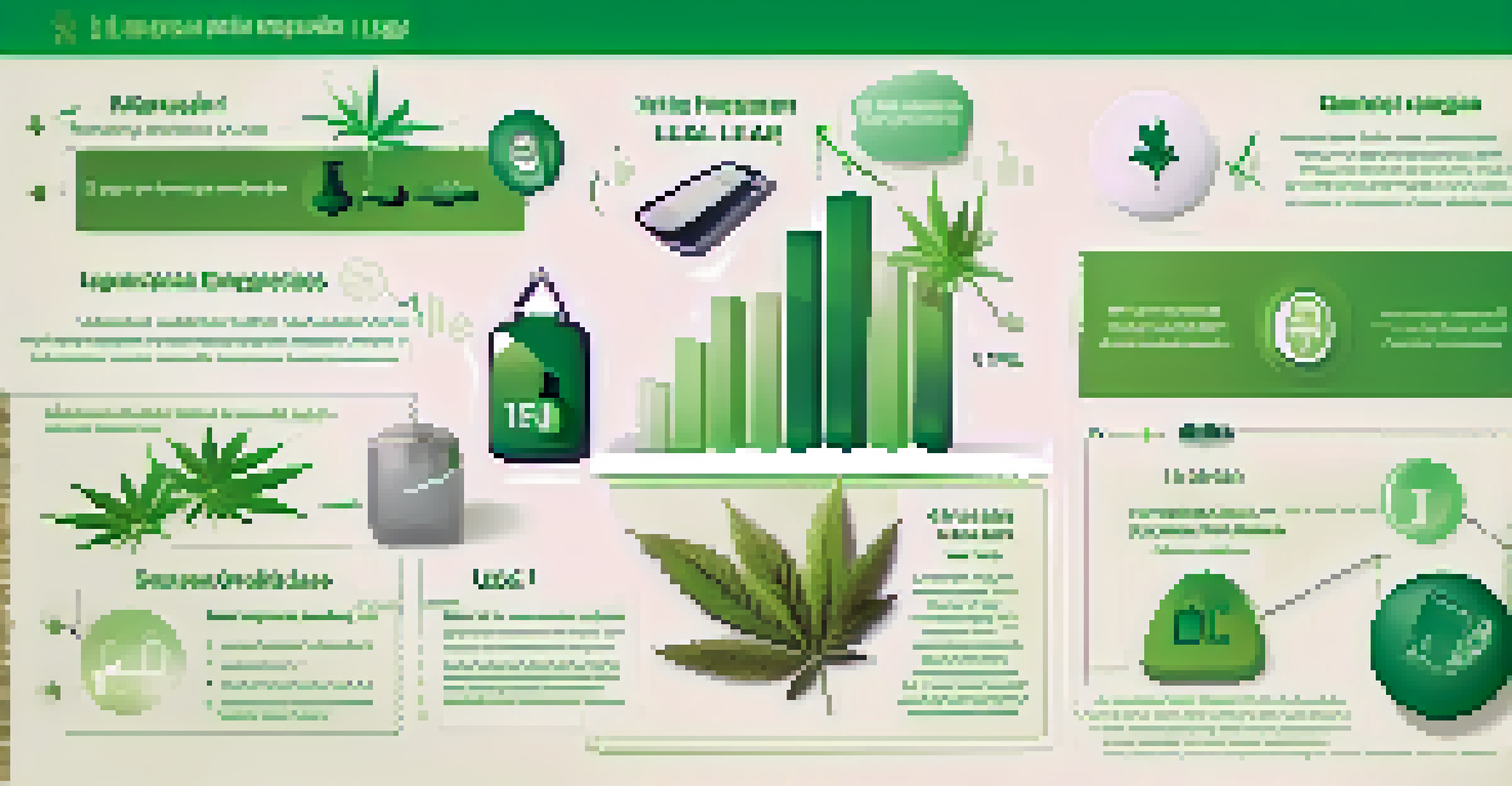Analyzing Community Responses to Marijuana in Emergencies

The Rise of Marijuana Use in Emergencies
As marijuana becomes more widely accepted, its use during emergencies is increasingly common. Communities are adapting to the changing landscape of cannabis legalization, which influences how individuals respond in crisis situations. For many, marijuana is viewed as a coping mechanism, providing relief from stress or anxiety during turbulent times.
The greatest weapon against stress is our ability to choose one thought over another.
Furthermore, the availability of marijuana can complicate emergency responses. First responders may need to consider the potential effects of marijuana on individuals when assessing their needs or offering assistance. This shift calls for an understanding of how cannabis impacts behavior and health during emergencies.
Ultimately, the rise of marijuana use during crises highlights the need for comprehensive community education. By fostering awareness about its effects, both positive and negative, communities can better navigate the complexities of emergency situations involving cannabis.
Community Attitudes Toward Marijuana in Emergencies
Public attitudes toward marijuana use during emergencies can vary widely. Some individuals view its use as a necessary means of coping, while others may see it as inappropriate or harmful. This divergence in opinions can create tension within communities, especially during high-stress situations.

Moreover, cultural and regional factors significantly influence these attitudes. In areas where marijuana has been embraced, community members may be more supportive of its use during emergencies. Conversely, in regions with stricter cannabis laws, there may be a stronger stigma attached to its use, complicating community dynamics.
Marijuana as a Coping Mechanism
Many individuals turn to marijuana during emergencies to alleviate stress and anxiety.
Understanding these varied perspectives is crucial for effective communication during crises. By addressing concerns and acknowledging different viewpoints, communities can foster a more inclusive environment that encourages open dialogue about marijuana use in emergencies.
Case Studies: Responses to Marijuana in Crisis Events
Examining real-life case studies can provide valuable insights into community responses to marijuana use during emergencies. For instance, during natural disasters like hurricanes, some individuals have turned to marijuana for relief from anxiety and fear. These responses highlight a reliance on cannabis as a coping strategy in times of uncertainty.
Education is the most powerful weapon which you can use to change the world.
In contrast, other case studies reveal challenges faced by first responders when encountering individuals under the influence of marijuana. In these scenarios, the presence of cannabis can complicate assessments and response plans, necessitating additional training for emergency personnel. This underscores the importance of understanding the community's relationship with marijuana.
By analyzing these case studies, communities can learn from past experiences and develop more effective emergency response strategies that account for the role of marijuana. This proactive approach can help mitigate potential issues while ensuring that the needs of all individuals are addressed during crises.
Legal Implications of Marijuana Use in Emergencies
The legalization of marijuana has introduced various legal implications, especially during emergencies. In regions where cannabis is legal, individuals may feel empowered to use it without fear of legal repercussions. However, this can create confusion for emergency personnel, who must navigate the legal landscape while providing assistance.
Additionally, the intersection of marijuana use and emergency laws can lead to complex situations. For example, if a person under the influence of marijuana requires medical attention, first responders must ensure they are not inadvertently violating any laws. This complexity emphasizes the need for clear guidelines and training for emergency personnel regarding marijuana use.
Community Attitudes Vary Widely
Public opinions on marijuana use in crises can differ significantly, influenced by cultural and legal contexts.
Communities must engage in ongoing discussions about these legal implications to ensure that everyone understands their rights and responsibilities. By fostering awareness, communities can create a safer environment that respects individual autonomy while promoting public safety.
The Role of Education in Shaping Community Responses
Education plays a vital role in shaping community responses to marijuana use during emergencies. By providing accurate information about the effects of cannabis, communities can empower individuals to make informed decisions. This knowledge can help mitigate potential risks associated with marijuana use in crisis situations.
Moreover, educational initiatives can bridge the gap between differing community opinions. Workshops, forums, and informational campaigns can create spaces for open dialogue, allowing individuals to voice their concerns and learn from one another. Such initiatives promote understanding and collaboration in navigating the complexities of marijuana use during emergencies.
Ultimately, a well-informed community is better equipped to respond to emergencies involving marijuana. Education fosters resilience and adaptability, enabling individuals to support one another during challenging times.
First Responders: Training and Preparedness
First responders play a crucial role in managing emergencies, making their training and preparedness essential when marijuana is involved. Understanding the effects of cannabis use can help emergency personnel assess situations accurately and respond effectively. This knowledge can also assist in mitigating potential risks associated with marijuana use during crises.
Training programs that include information on marijuana can enhance first responders' ability to communicate with individuals under the influence. By familiarizing themselves with cannabis-related issues, responders can approach situations with empathy and understanding, fostering a safer environment for everyone involved.
Education Enhances Emergency Responses
Providing accurate information about cannabis can empower communities and improve responses to emergencies involving marijuana.
As communities evolve, so must the training protocols for first responders. By prioritizing education on marijuana use, emergency personnel can better support their communities and ensure that responses are both effective and compassionate.
Future Considerations for Marijuana and Emergency Responses
Looking ahead, it’s essential to consider how the relationship between marijuana and emergency responses may continue to evolve. As legalization efforts expand and societal attitudes shift, communities must remain proactive in addressing these changes. This involves anticipating potential challenges and exploring innovative solutions to accommodate marijuana use during emergencies.
Additionally, ongoing research into the effects of marijuana on behavior and health will be critical in informing best practices for emergency management. By staying informed about emerging trends and data, communities can adapt their strategies to ensure they meet the needs of their residents effectively.

Ultimately, the future of marijuana use in emergencies will depend on collaborative efforts among community members, first responders, and policymakers. By working together, they can create a framework that respects individual choices while prioritizing public safety and well-being.